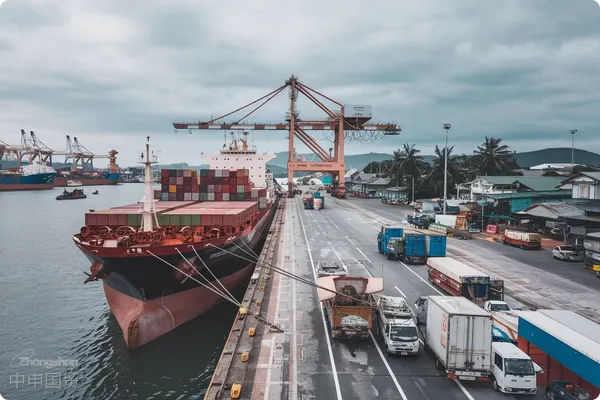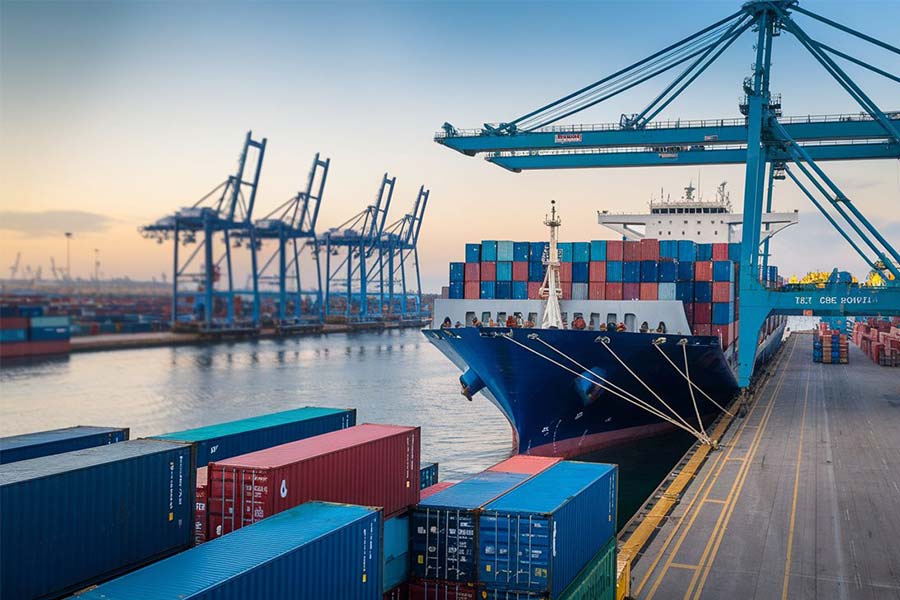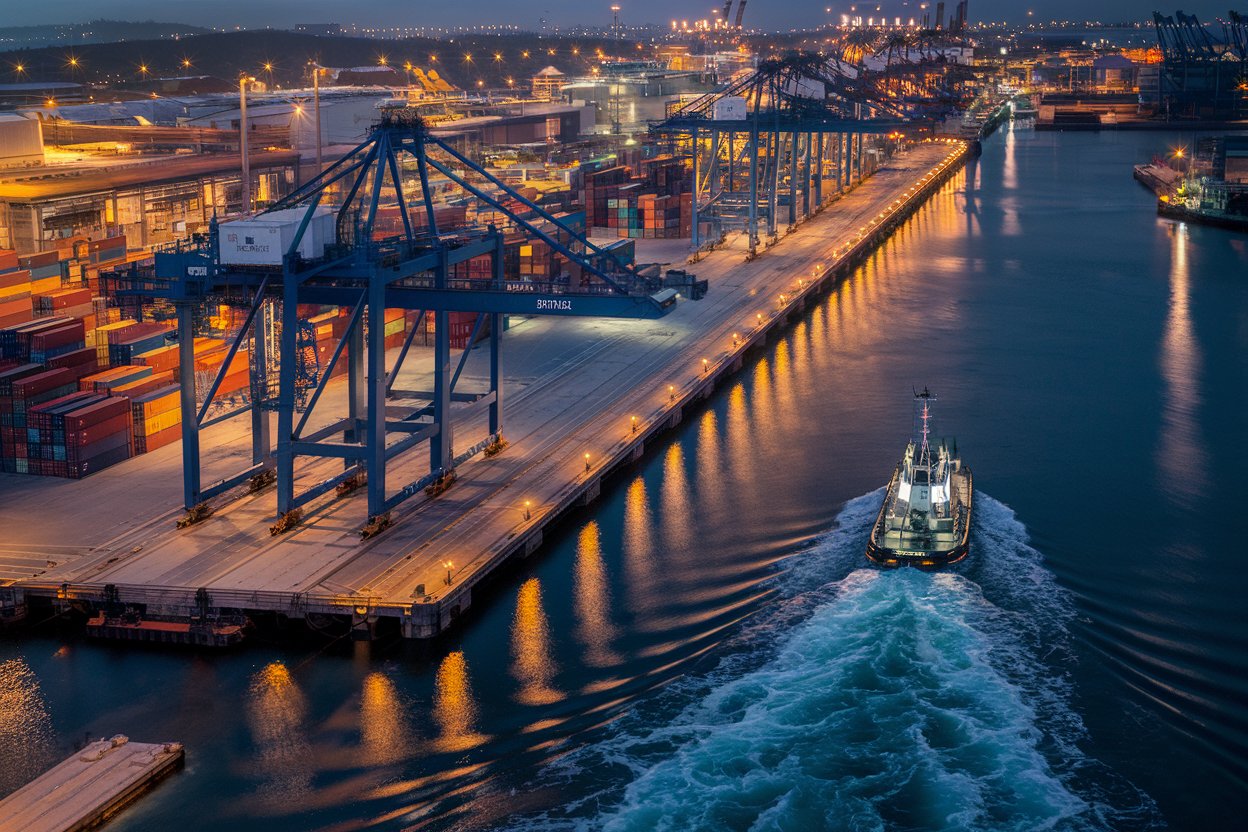- Shanghai Zhongshen International Trade Co., Ltd., with 20 years of experience in foreign trade import and export agency services.
- Service Hotline: 139 1787 2118

German Imported Murals: Embarking on a Journey of Art and Trade
In the context of the increasingly interconnected global art market, importing murals from Germany has brought a diverse range of artistic works to domestic art enthusiasts and businesses. However, importing murals involves numerousForeign tradeProcess: How to smoothly complete the import procedures is a key concern for many importers. Next, we will delve into the details of handling documentation and logistics arrangements for importing murals from Germany.Foreign exchange settlementas well as key points regarding certification and other aspects.
Professional Document Handling: The Cornerstone of Trade
Document processing is crucial in the importation of murals. First and foremost, the commercial invoice serves as a key document that records detailed information such as the value, quantity, and specifications of the goods. It must be filled out accurately to ensure it matches the actual condition of the goods. The packing list is equally indispensable, as it clearly itemizes the contents of each package, facilitating customs inspection and inventory checks during logistics and transportation.
For importing murals from Germany, the bill of lading serves as a document of title. When selecting the type of bill of lading, it should be determined based on the mode of transportation and the terms of the trade contract. For example, if choosingOcean shipping, ocean bills of lading are typically used. When preparing and reviewing these documents, it is essential to pay attention to details to avoid spelling errors, data inconsistencies, and other issues, as even the slightest mistake may lead to cargo being held up at customs and delays in delivery time.
Based on our years of experience in foreign trade, communicating documentation requirements with suppliers in advance and ensuring that the documents they provide meet domestic customs clearance standards can significantly improve documentation processing efficiency. Additionally, professional foreign trade agency companies, such asZhong Shen International Trade, with its extensive experience, can meticulously review and process various types of documents to ensure the smooth flow of trade processes.
Efficient Logistics Arrangement: Guaranteed Transportation of Goods
Logistics arrangements directly impact the timeliness and safety of imported murals. From Germany to China, common transportation methods include sea freight,air freightOcean shipping costs are relatively low, making it suitable for large-scale imports, but the transit time is longer; air freight is faster and can quickly meet market demand, but the cost is higher. Importers need to choose the appropriate transportation method based on their own needs and the urgency of the mural.
During the shipping process, it is essential to select a reliable shipping company and understand its sailing schedule and transportation routes. At the same time, proper packaging protection for the cargo is crucial. Murals are generally fragile and require professional packaging materials, such as foam boards and wooden crates, to ensure they are not damaged during long-distance transportation.
For air freight, it is essential to monitor flight schedules and book cargo space in advance. Upon the goods' arrival at the destination airport, promptly handle customs clearance procedures to ensure swift transfer to the final destination. Professional foreign trade agencies hold advantages in logistics arrangements, as they maintain long-term partnerships with major logistics companies, securing more favorable rates and high-quality services. Additionally, they provide end-to-end tracking of the logistics process and timely updates on cargo status.
Russian Market: The Unique Advantages of VTB's Foreign Exchange Settlement
If the imported mural parts are to be sold in the Russian market, ZhongShen International Trade has unique advantages in foreign exchange settlement. Foreign exchange settlement is a crucial aspect of international trade, involving the recovery and security of funds. For business with Russia, settling payments through VTB Bank offers numerous conveniences.
VTB Bank holds a significant position in Russia's financial system and maintains close business ties with numerous Russian enterprises. Conducting foreign exchange settlements through VTB can streamline the settlement process and accelerate fund transfers. Generally, the settlement process begins with the exporter shipping goods as per the contract and then submitting the relevant documents to the bank. After verifying the documents, the bank disburses the payment to the exporter. In business dealings with Russia, due to VTB Bank's local influence, document verification and fund transfers can be completed more swiftly, reducing the time funds spend in transit and mitigating the risks associated with exchange rate fluctuations.
For example, in the past, some clients conducting trade settlements with Russia might have taken 5 to 7 working days to complete fund transfers through other banking channels. However, by using VTB for settlements, the process typically takes only 3 to 5 working days, significantly improving the efficiency of fund utilization.
It is recommended to choose based on transportation distance and product characteristics:Import and exportProcess and Solution
The Southeast Asian market has become increasingly active in international trade in recent years. For those importing murals from Germany and then reselling them to Southeast Asia, understanding the import and export procedures is crucial.
Import Process: First, the importer needs to register with the local customs to obtain import qualifications. Subsequently, a trade contract should be signed with the supplier, specifying terms such as product specifications, quantity, price, and delivery schedule. Before the goods arrive at the Southeast Asian port, the importer must prepare commercial invoices, bills of lading, packing lists, and other documents in advance and submit them to the local freight forwarder or customs broker for pre-declaration.
Upon the arrival of goods at the port, customs will conduct an inspection to verify the authenticity, quantity, quality, and other aspects of the goods against the documentation. If the inspection reveals no discrepancies, the importer is required to pay the corresponding tariffs, value-added taxes, and other applicable fees. Once customs clearance is granted, the goods can be released from the port.
Solution: During the import process, various issues may arise, such as customs inspection failures or disputes over tax calculations. Professional foreign trade agency companies can provide effective solutions to these problems. For instance, conducting pre-shipment inspections to ensure goods meet the quality standards of the Southeast Asian market can help avoid customs inspection issues. Regarding taxes, a thorough understanding of local tax policies and proactive communication with customs authorities can ensure accurate and reasonable tax calculations.
The Landscape of International Trade: Challenges and Opportunities Coexist
The current international trade situation is complex and ever-changing, presenting both numerous challenges and opportunities for the business of importing murals from Germany.
Challenges: The rise of trade protectionism has led countries to introduce various trade restrictions, such as raising tariffs and erecting trade barriers. This increases import costs and may also result in more obstacles during customs clearance. Exchange rate fluctuations further introduce uncertainty to import operations, as significant volatility may cause importers to suffer losses when settling foreign exchange.
Opportunities: With the acceleration of global digitalization,Cross-border e-commerceThe market is thriving. Imported murals can leverage e-commerce platforms to expand sales channels, directly reach global consumers, and increase market share. Meanwhile, countries continue to advance the signing of free trade agreements, creating a more favorable environment for international trade and reducing trade costs.
Importers should closely monitor changes in the international trade situation and adjust their trade strategies in a timely manner. For example, they can mitigate exchange rate risks by signing forward foreign exchange contracts to lock in rates, and actively explore emerging markets to diversify market risks.
Product Certification Services: Ensuring Compliance in Business Operations
During the importation of German murals, product certification is a crucial step to ensure compliance with regulations. Different countries and regions may have varying certification requirements for imported murals, such as the EU's CE certification and China's...CCCCertification, etc.
Although ZhongShen International Trade does not directly provide certification services, we will inform customers of the required certifications and assist them in the application process. We help clients navigate the certification procedures, provide information on relevant certification bodies, and guide them in preparing the necessary documentation. For instance, regarding CE certification, we will inform customers about the product scope, certification modes, and required technical documents, while facilitating communication with certification agencies to ensure a smooth certification process.
In summary, importing murals from Germany involves multiple steps such as document processing, logistics arrangements, foreign exchange settlement, and certification. Under the current complex international trade environment, choosing a professional foreign trade agency company, such as ZhongShen International Trade, can help importers tackle various challenges, seize opportunities, and successfully complete the import process.
Recommended for You
? 2025. All Rights Reserved. Shanghai ICP No. 2023007705-2  Shanghai Public Network Security Record No. 31011502009912
Shanghai Public Network Security Record No. 31011502009912










